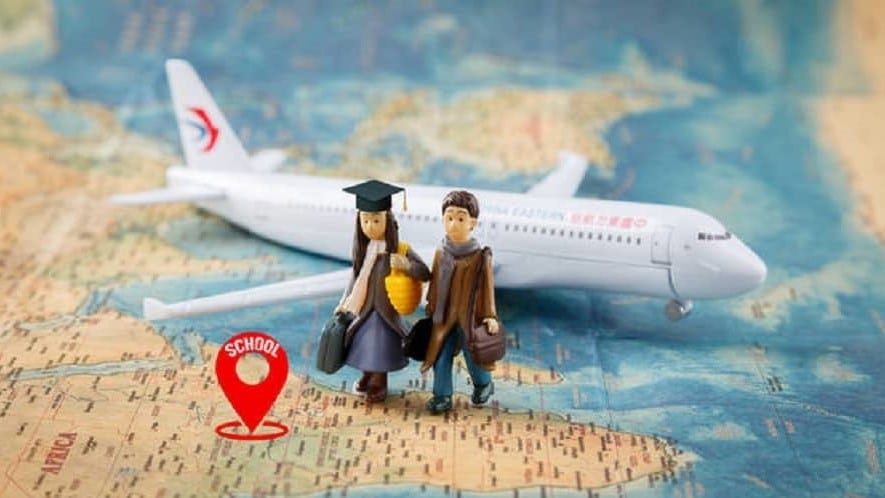
New Opportunities for British Online KS2, GCSE, and A-level Learning Platforms in 2021
| July 24, 2021 | Mia Li |
Intro
In recent years, studying abroad at a young age in China has become a trend.
The Independent School Council (ISC for short, all members are high-quality private schools) conducts surveys on member schools every year and publishes an ISC Annual Census. All 1,377 schools in the UK membership of the constituent associations of ISC completed the survey for the report in 2021. From the results, we can see that 54,236 students are from private schools in the UK. Also, 8558 students come from mainland China, which accounts for the largest proportion of international students. At the same time, more British private schools are operating overseas. There are currently 81 such schools with 52,975 enrolled, of which the schools in China (37) and enrollment numbers (21,327) are the largest.
At the 2021 Hurun China Top 100 International Schools conference held on April 22, Hurun Report Chairman and Chief Research Officer Hu Run said that through the changes in destinations over the years, we could see the major trends of Chinese children study abroad. Australia and Canada were the first choices more than ten years ago and then changed to the United States; in the past year, the United Kingdom became the first choice. In fact, even if there is no impact of the pandemic, the education in the UK is attractive enough, such as the KS2 and GCSE courses in the UK. Even if they do not send their children to the UK, Chinese parents are interested in these courses. Some have sent their children to the overseas campus of the UK schools. At the same time, under the pandemic, online KS2 courses and online GCSE courses have also become a popular choice for many parents.
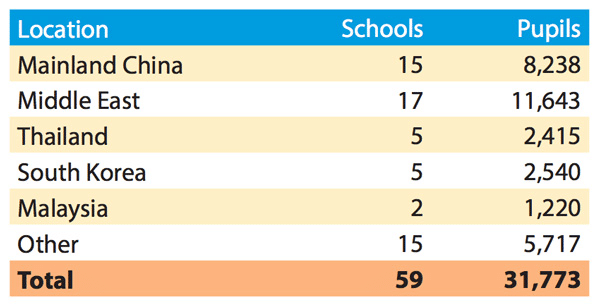
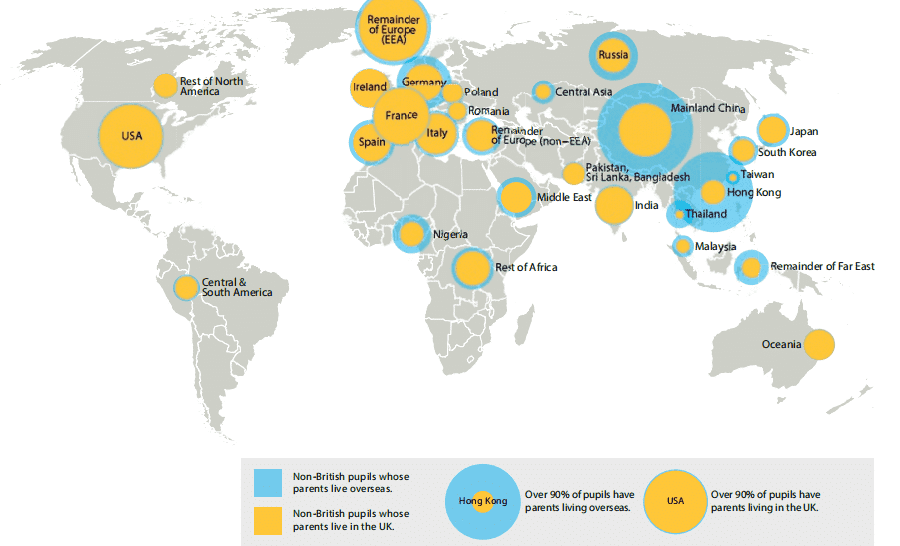
- Intro
- What is Key Stage (KS) in the UK?
- Compulsory Education: UK VS China
- The Education System in China and the UK
- What are the KS2 Courses in the UK?
- GCSE Courses VS Chinese Junior High School Courses
- Revealed in the Pandemic: The Challenges of Studying Abroad at a Young Age
- Opportunities: Online KS2, GCSE & A-Level Courses or Tuition Courses for Chinese Students
- Conclusion
What is Key Stage (KS) in the UK?
Apart from the nursery and reception stage, the UK divides the state education system into five key stages. KS1 is two years, KS2 is four years, and the two together form primary education. KS3 is the junior high school stage (7th to 9th grade), a total of three years. At the end of KS1 and KS2, students must take the SAT (Standard Attainment Test). Although the abbreviation is the same as the SAT (Scholastic Assessment Test) in the US college entrance examination, the form, content, and difficulty are different. On the UK SAT, students must take reading, writing, arithmetic, and science tests. Students who want to enter a Grammar School (a key school in British public schools) need to take an additional grammar school entrance exam.
KS4 and KS5 are two stages that are relatively familiar to Chinese parents, especially in the international high schools that adopt the British high school system in China. At the end of the two semesters, students must take the GCSE (General Certificate for Secondary) and A- LEVEL exam to get the corresponding middle school and high school graduation certificate.
GCSE
What is GCSE?
GCSE (General Certificate of Secondary Education) is a British junior high school graduation diploma equivalent to the one obtained after China’s junior high school graduation examination. But in fact, the GCSE course is a British secondary school’s 10th and 11th-grade learning courses. The requirements are higher than that of China’s junior high school.
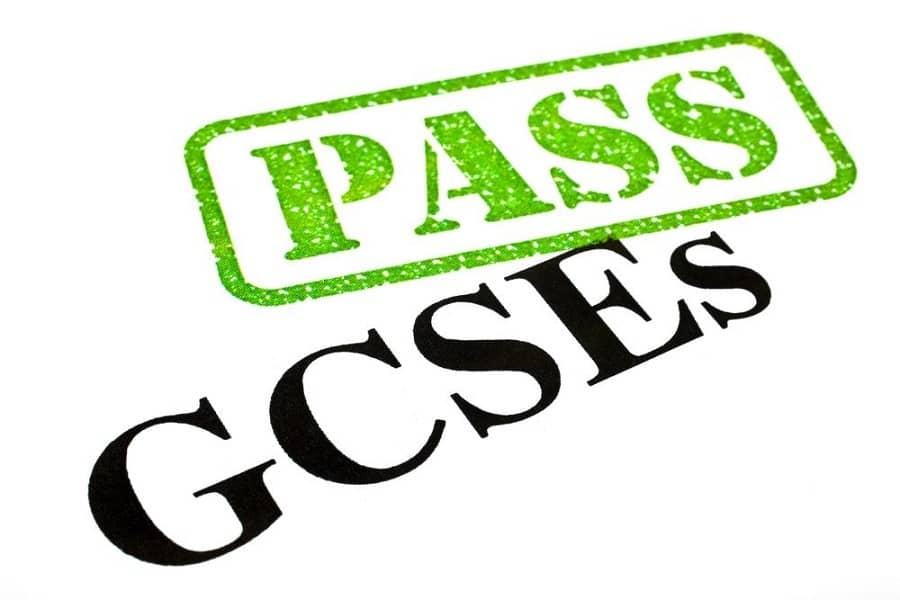
GCSE VS Courses in Chinese Senior High School
At the GCSE stage, students usually study 8-12 courses within two years (grades 10-11), some are compulsory subjects, and the others are elective. Compulsory courses include English, mathematics, design, and technology, French or German, biology, chemistry or physics, history, or geography; elective courses include art, biology, business studies, chemistry, economics, French, geography, German, history, humanities, Italian, music, physics, religious studies, Russian, Spanish, etc. There are many other professional subjects to choose from.
In China, students at the age of GCSE learn Chinese, Mathematics, English, or Japanese; Physics, Chemistry, Biology, Geography, History, Social Science, P.E, Computer, Art, and Music. They can choose from these courses except for Chinese, and math, which are the main subjects requiring most of their energy to learn. Options for these students are limited, and a high score in the college entrance exam is their ultimate target.

GCSE&A-level VS Gaokao (NCEE)
After the two-year GCSE courses, students need to take the unified GCSE exam. Students’ scores mainly depend on the exam. They only base a few subjects on the students’ learning situation throughout the year (combined with exams and homework, and the work depends on the students’ personal research, analysis, and reports during the entire study period). The grades range from the highest A* to G. It also includes U and X. Furthermore, a U means ungraded, and an X means absent. We should note that they will use the GCSE scores of students as a reference for A-level and even university admissions.
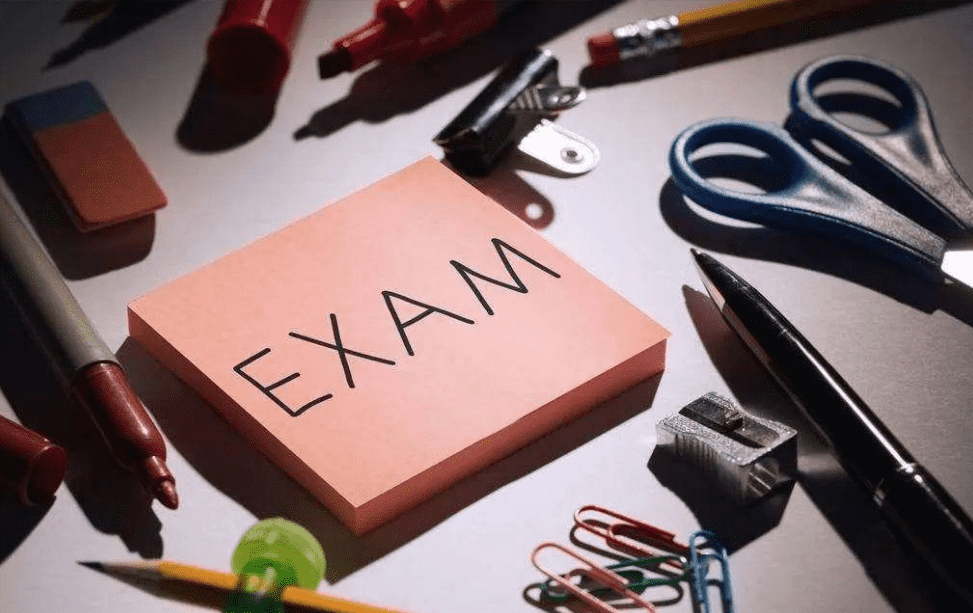
The National College Entrance Examination (NCEE), commonly known as the Gaokao, is held annually in mainland China for students in their last year of high school. Whether most students can get the offer from a university, get a job, and lead a decent life in the future, basically depends on this test and the reason for the fierce competition and Chinese students’ tedious life without any hobbies. This situation drives many parents to send their children overseas.
Compulsory Education: UK VS China
British divide their education into compulsory education, further education, and higher education. China implements a school education system of preschool education, elementary education, secondary education, and higher education.

The Education System in China and the UK
Primary education in the UK is the same as in China, and they base it on six years. Things are different after that. GCSE and A-level stages in the UK and China’s junior high and high school do not directly correspond. The GCSE stage is two years, and its courses are equivalent to the first and second grades of high school in China. Generally, it is fifteen and sixteen-year-old children who are studying at this stage. A-level also lasts for two years, and the class that offers A-Level courses is called “Sixth Form”, which they divide into two levels: AS-level and A-level. In theory, AS-level is equivalent to the third year of high school in China, and A-level is equivalent to British undergraduate preparatory.
What are the KS2 Courses in the UK?
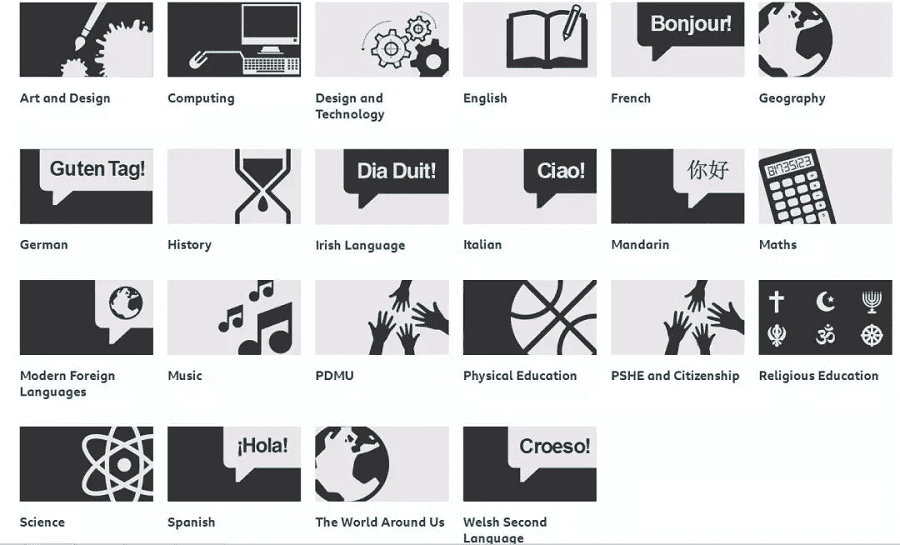
The content is the same as that of the previous stage, except they added foreign languages. Of course, the difficulty of the course has also improved. At this stage, students must take the primary school graduation exams and prepare for admission to middle school.
In China, the primary school curriculum often includes Chinese, mathematics, physical education, music, basic science, history and geography, morality, and ethics course, combined with practical work experience around the school campus. They usually teach English in grades 3 or 4.
GCSE Courses VS Chinese Junior High School Courses
The GCSE courses are for the 10th and 11th grades of British secondary schools, and these courses are difficult for Chinese junior high school graduates (you can find the Specific GCSE courses above).
The biggest advantage of British junior high schools is that the British GCSE curriculum has an early plan for students. For all courses of study, students can choose according to their own interests and future majors in the university. This will let students know where their interests are and have a clearer understanding of future university majors and employment. For example, students who want to be actors in the future can choose to take a drama-acting course.
Besides, British secondary schools generally teach in smaller classes. This not only allows students the best care but also develops their personality and hobbies, plus the world’s leading teaching equipment and teaching concepts, which enhances their competitiveness.
In contrast, classes in China are much larger. Schools attach great importance to being quiet, encourage silence, and reward rigid postures and exercises. The teacher must make students comply with these requirements and punish any violations. Under China’s test-oriented education, most students have only one choice, which is to work hard to receive good exam results.

Revealed in the Pandemic: The Challenges of Studying Abroad at a Young Age
With the outbreak of the pandemic spreading in many countries, the safety of international students has aroused people’s concerns, especially those who have not yet grown.
At the beginning of March 2020, the report of “15,000 primary school students stranded in the UK” sparked heated discussion in China. Due to the closure of schools and the skyrocketing price of return tickets, some host families refused to accept Chinese students. Therefore, 166 families jointly wrote letters requesting the Chinese government to arrange chartered flights to take their children back to China. Then the Chinese government responded immediately.
In April 2020, the Chinese government organised chartered flights to pick up primary school students back home in batches. Not only the elementary students stranded in the United Kingdom but also those in the United States, Spain, and other countries also took a chartered flight to China to return home.
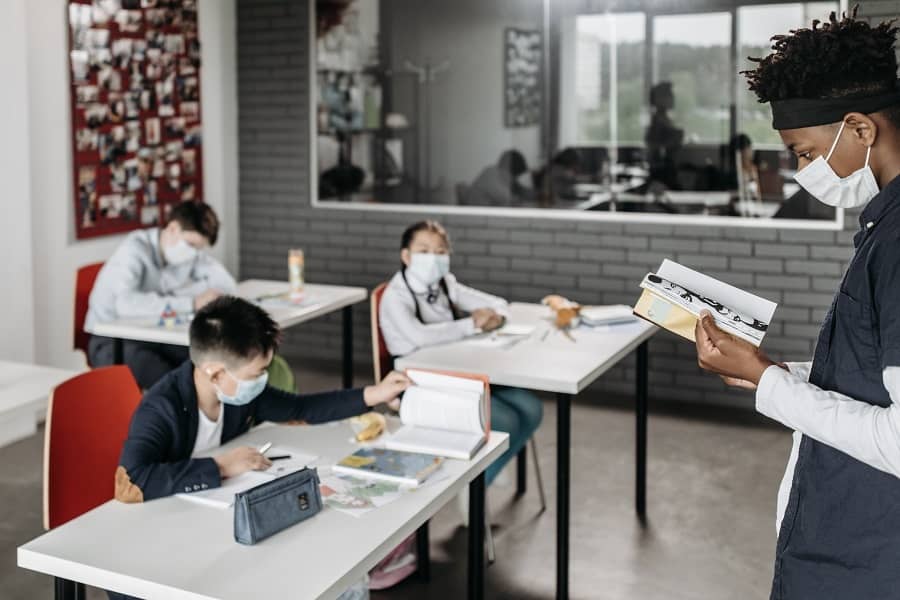
These small international students are no more than ten years old. Undoubtedly, their parents feel so heartbroken and worried. The camera recorded their journey back to China, and the children wrapped in protective clothing, goggles, and masks looked immature. Later, two of the children were diagnosed with COVID-19 after returning to China.
These underage children live and study overseas alone and do not have sufficient self-protection capabilities, while their parents work in China and cannot be by their side. Once an emergency occurs, the safety of these children will immediately fall into a worrying situation.
In general, there are several concerns from the students’ parents of studying abroad at a young age:
1. Safety
Minors are a vulnerable group and lack sufficient self-protection capabilities. Going abroad to study and live alone, using a language that is not familiar enough to communicate with others in a complex environment is a great challenge for children. In the usual relatively safe situation, many parents and children see this challenge as an opportunity to exercise their abilities. However, once there is a sudden danger, such as the outbreak of the COVID-19, violent conflicts, or even local wars in certain areas, these children will fall into helplessness. The tears of the parents who requested the motherland to charter flights are the best proof.
2. Cast a shadow on the growth of children
Childhood and adolescence are key stages of physical and mental growth. During this period, the child is stripped from the familiar cultural environment and comes to an unfamiliar one. You can imagine the pressure of losing the company of relatives and friends. The pain, loneliness, struggle, and confusion suffered by studying abroad alone are likely to transform into psychological problems such as depression and anxiety, which affect the child’s physical and mental development.
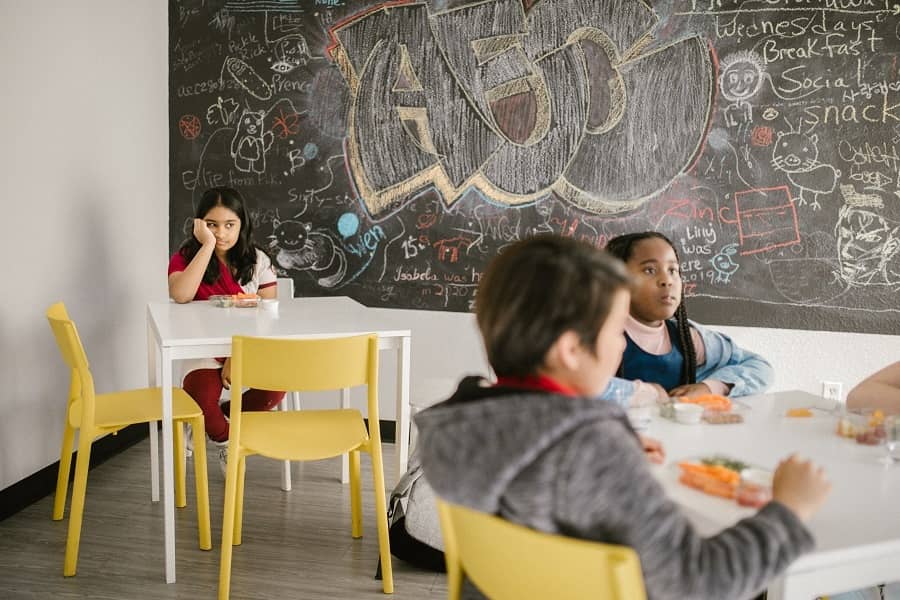
3. Conflict of cultural values
The children have not yet encountered enough Chinese society in the country, nor have they formed a deep understanding of the deep foundation of Chinese culture. On this basis, they go to a new country to accept a new culture, and they tend to lack systematic value when they grow up. The system and sense of identity have caused the embarrassment of integrating into foreign society and being separated from Chinese society.
The UK schools need to be aware and address these concerns well enough to convince Chinese parents to send their children to study in the UK. Enlybee can help you deal with these concerns and recruit more Chinese students through effective digital marketing in China.
Opportunities: Online KS2, GCSE & A-Level Courses or Tuition Courses for Chinese Students
In the face of the pandemic and above challenges, the emergence of online KS2 courses, online A-levels courses, and online GCSE courses can be a solution, which also means a good development opportunity for these online platforms, including online Tuition courses or English language studying. The site schoolexams.co.uk is a good example. It provides top quality, online exam revision to help every child achieve their full exam potential across SATs and GCSE. Used by thousands of teachers and students in schools across the country, they have an ever-growing library of tutorial videos and supporting materials created by the same people who set and mark these exams.
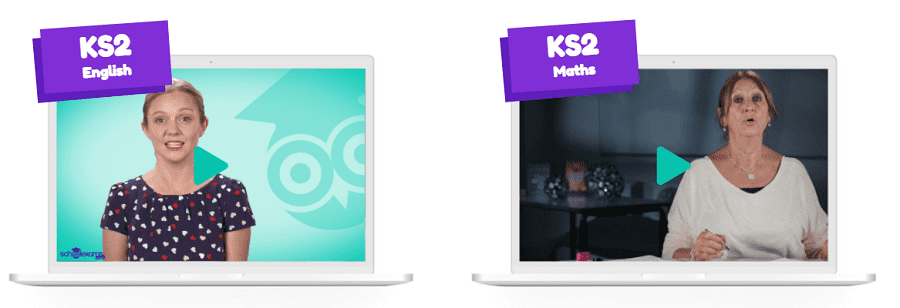
They have made remarkable achievements in improving students’ performance. In their student panel trial, GCSE students improved their math scores by 34.6% on average, spending only 1 hour a week on schoolexams.co.uk over six weeks, while the figure for KS2 students was 28.6%, 1 hour over four weeks.
Online KS2 and GCSE courses platforms like this help many parents get over the difficulty brought by the pandemic and meet their needs for their children’s education.
Conclusion
The rise of online GCSE courses and KS2 courses, A-level can become a new way for young Chinese students to learn British courses; this is also an excellent opportunity for online education institutions in the UK. The Ministry of Education of China currently stated that the impact of the COVID-19 would be temporary, and they have no objection to studying abroad at this stage. This means that many Chinese students may still choose to study abroad after taking vaccination and proper safety measures. On top of that, there could be new opportunities to explore regarding your long-term strategy with the Chinese education market. To achieve growth in the Chinese education market, it is necessary to find a digital marketing agency familiar with the Chinese market and up to date with the latest regulation changes and challenges. For example, China is barring tutoring for profit in core school subjects to ease financial pressures on families that have contributed to low birth rates, a report in the official Xinhua news agency said on 24 July 2021. Speak to the Enlybee team and find out more. https://bit.ly/3hIl6CG
| Don’t forget to share this post! |